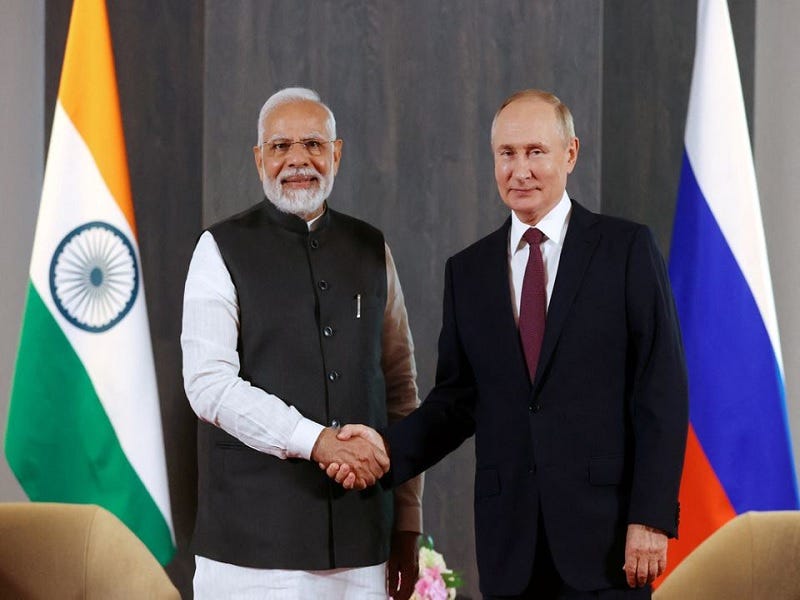Casual observers might have interpreted their exchange as India’s tacit condemnation of Russia’s ongoing special military operation in Ukraine, but that’s not the correct way to look at it.
Indian Prime Minister Modi told President Putin during their meeting on the sidelines of this year’s SCO Summit in Samarkand that “I know that today's era is not an era of war, and I have spoken to you on the phone about this.” That prompted his partner to reply that “I know about your position on the conflict in Ukraine, and I know about your concerns. We want all of this to end as soon as possible.” Casual observers might have interpreted their exchange as India’s tacit condemnation of Russia’s ongoing special military operation in Ukraine, but that’s not the correct way to look at it.
Since the start of the latest US-provoked phase of the Ukrainian Conflict, India has proudly practiced a policy of principled neutrality and bravely rebuffed all American pressure upon it to turn against Russia. This was done in order for that South Asian civilization-state to preemptively avert its strategic partner’s potentially disproportionate dependence on China as a valve from unprecedented Western pressure. Had Delhi not intervened as decisively as it did, then Moscow could have become Beijing’s “junior partner”, which would have compelled Delhi to become Washington’s in order to “balance” it out.
This game-changing outcome contributed to the global systemic transition to multipolarity continuing its gradual evolution from bi-multipolarity to tripolarity prior to its final form of more complex multipolarity (“multiplexity”). Throughout the course of these full-spectrum paradigm-changing processes in International Relations, India aspires to complete its rise as an independent pole of influence (first in joint partnership with Russia and Iran ahead of becoming one in its own right), after which it’ll exert enormous sway over the Global South that it hopes to informally institutionalize through the Neo-NAM.
In order to remain as attractive of a partner to as many developing countries as possible, it’s absolutely imperative that India projects the image of being a peaceful and responsible Great Power that always prioritizes international stability. To that end, its representatives always apply a peacenik approach for this envisaged long-term soft power purpose. With this in mind, the Indian leader’s remark about how “today’s era is not an era of war” and the prior “concerns” that he shared with President Putin fully align with his country’s principled neutrality and grander strategic goals.
Observers shouldn’t forget this insight either since India will probably remain under some perpetual form of pressure from the US-led West’s Golden Billion as punishment for not turning against Russia and thus becoming their “junior partner”. Even though it’ll continue balancing between them and the BRICS-led Global South of which it’s a part, India must expect that at least some low-level form of information warfare will be waged against it in order to manipulate perceptions about its policies, particularly the Russian dimension. By remembering this analysis’ insight, however, readers can avoid being deceived.





Everyone knows that brics destroy gates. The New World Order has much more than Russia to be afraid of.